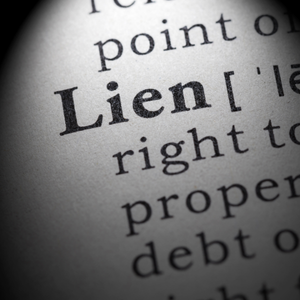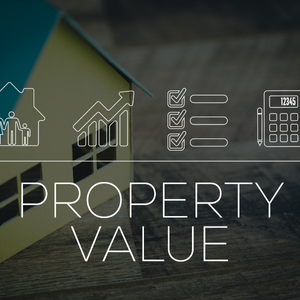
Selling a house in Pennsylvania with a lien attached may seem complicated, but it’s not impossible. Liens are legal claims on your property related to unpaid debts, and they must be resolved prior to the ownership transfer. Understanding the types of liens, their legal implications, and the methods for addressing and resolving these encumbrances is crucial to a successful sale. Nura Home Buyers can assist in selling a liened property in the Commonwealth of Pennsylvania, helping to resolve the legal problems and debtor’s demands and assuring a smooth and successful sale. This may be helpful to these prospective buyers and homeowners.
Brief Overview
It is possible to sell a house with a lien in Pennsylvania, but it involves complicated legal and financial obligations. Homeowners can sell to cash home buyers in Pennsylvania and adjacent areas to help with lien settlements, through either negotiation or payment, as a step to removing tax and judgment liens before a sale. Resolving liens will most probably need a plan and professional assistance. Working with real estate lawyers and financial planners will help clients understand and make compliant decisions as well as facilitate unclogged sales in encumbered properties in Pennsylvania.
Key Highlights
- Ownership transfers are prohibited until liens are resolved.
- Different liens, like tax and mortgage liens, affect how property in Pennsylvania is sold.
- Reduced debt may improve the ease with which the sale is finalized during negotiations on lien settlement.
- There are liens on the property. Due diligence, strategic thinking, and help from professionals are needed when selling.
- Liens make property more difficult to sell by preventing a new owner from taking a title that is free and clear.
Understanding Property Liens in Pennsylvania

For homeowners in Pennsylvania, understanding property liens is especially important when thinking about selling a house. A property lien is a legal claim against your property to guarantee payment of a debt. Liens come in many types, including tax and mortgage liens, all of which homeowners need to understand in order to facilitate real estate transactions. Understanding how these liens impact the ability to sell a property is a crucial part of effectively navigating Pennsylvania’s real estate market. The subsequent sections will explain, in greater detail, what a property lien is and the most common types.
What Constitutes a Property Lien?
A lien on a property is the right that a lender or a creditor holds over a debtor’s property, which is only lifted when the outstanding debt is paid. In the case of Pennsylvania, liens may occur from unpaid property taxes, defaults on mortgages, or court judgments and become a matter of public record and can be accessed through the office of the county clerk. The primary purpose of a lien is to act as a security for the creditor to ensure that the funds owed to them can be recovered or paid by the direct sale of the property in question or through forced foreclosure in the case of a default.
Liens can be of various types. The more common liens are voluntary or contractually agreed upon, as in the case of mortgage liens, whereby the homeowner consents to allowing the lender a claim over the property. Involuntary or non-voluntary liens are those imposed as a result of court judgments or tax liens. The sale of a property necessitates the lien to be cleared as it transfers a clear title. Buyers are generally deterred from encumbered properties. Careful planning is crucial, as Pennsylvania law requires that unpaid liens be settled from the sale proceeds if they are not settled prior to the sale.
Types of Liens: Tax Lien vs. Mortgage Lien
In Pennsylvania real estate transactions, the most prevalent types of liens are mortgage liens and tax liens. Each type of lien has unique legal characteristics. A tax lien is levied when an owner of the real estate completely fails to pay taxes due on that property, as well as income taxes. Unlike mortgage liens that are the result of an inter partes agreement, tax liens are the result of unilateral government action. Tax liens are prioritized and must be resolved before a lienholder can sell a property. Unlike tax liens, mortgage liens are created by contract when a borrower takes a loan and promises the property as collateral. A borrower has the right to use the property and will lose that right only when the loan is unpaid and the lender has initiated foreclosure procedures. Because tax liens will always be prioritized over mortgage liens, the lender is permitted to foreclose on the mortgage when unpaid taxes on the property are due. Ensuring that tax and mortgage liens are satisfied, or at least that arrangements are legally resolved to avoid challenges to Pennsylvania property laws, is crucial for any real estate market participant.
Key Strategies for Property Owners to Manage Liens Effectively
- Determine the feasibility of settling outstanding orders of lien balances.
- Reach out to the lienholders or the tax authority to negotiate a deal for lien release.
- Engage a specialist for a lien situation.
- Identify payable agreements or settlements for tax liens or mortgage liens.
- Check your credit file for missed liens quarterly.
- Know the laws that defend your interests on your property with the lien.
Defensive propelling is the most effective strategy to minimize the influence of liens on your subsequent dealings.
Are you able to sell a house with a lien in Pennsylvania?

It is not easy to sell a home with a lien in Pennsylvania, but with enough preparation and proper assistance, it can be done. Since liens are legal claims on a property, they must be resolved to allow for an uncomplicated sale. For a property owner to sell a house with a lien, it is imperative to comprehend the legal ramifications and the steps they will need to take to sell the house. For judgment liens, legal steps must be followed to prevent sale complications. In this section, we will explain the legal problems you will face and the steps you can take to sell a liened property.
Legal Implications of Selling a House with a Lien
In Pennsylvania, selling a house with a lien entails a collection of complex legal issues relative to selling a property. A lien is a public attestation of a legal claim over a property. Liens can make potential buyers skittish. Unpaid debt can result in property tax liens as well as judgment liens, the latter being more common. A property owner’s ability to sell a property during the existence of a lien is significantly impaired, as liens must generally be satisfied or discharged before title can be delivered. In Pennsylvania, generally, liens that become payable through a sale of the property are deductible from the sale proceeds, which affects the seller directly. In worst-case scenarios, liens can lead to foreclosure, legal action, or civil debt collection.
Property owners must then exercise residency, which selling a property entails, which is performing a title search to reveal all extant liens. Voluntary liens, generally mortgages, will be cleared as part of the listing, while tax and judgment liens, as well as other involuntary liens, will require negotiations with creditors. This is a perfect example of the need to engage an estate attorney to determine the legal rights and obligations while fitting the selling of the property to mandated payment plans or negotiated lien settlements. This ensures liens can be satisfied or discharged in conformity with Pennsylvania lien law. Enlisting the services of an attorney will enhance the chances of the homeowner selling a property that is free of strategic liens.
How to Sell a Property with a Lien on It
In Pennsylvania, selling a home with a lien will require a few specific steps to remove encumbrances to ensure a smooth transaction. First, evaluate the types of liens and amounts on your property, preferably with the help of a title company or real estate attorney. This will include finding judgment liens, tax liens, and other financial obligations on your property. Once ascertained, payable liens such as mortgages usually will require some coordination with lenders to pay off the mortgage, negotiate settlements, or create payoff plans to eliminate the mortgage payable lien. Negotiable involuntary liens will need a reduction negotiation, a contested lien release, and lien subordination, which repositions the lien legally to allow the sale. Lienholders will need to talk to keep financial pressure to a minimum.
Prepared marketing and closing are of equal concern. A transparent approach relative to lien resolution, starting with a competitive listing price that also considers lien resolution, will build buyer confidence. In the closing process, identify and prepare settlement documents to minimize discrepancies. In Pennsylvania, homeowners may sell a property with a lien encumbrance on it while also protecting legal and financial exposure, attracting buyers. We buy houses in Philadelphia and nearby cities in Pennsylvania, and effective negotiation and lien settlement are some of the things to focus on.
Impact of Liens on Property Value and Sale

For homeowners in Pennsylvania, understanding how liens influence a property’s value and sale is extremely important. Liens change the value and marketability of a home because of the legal attachments that come with any lien. They complicate the sale and leave room for other complications during the sale. If you wish to understand the effect of liens on the value of a home and the ways to solve these problems in Pennsylvania, the following sections explain in detail the complex relationships between property value and the obstacles linked with the sale.
How Liens Affect Property Valuation
Liens pose a more negative impact during property valuation since they are still a Legal Claim on the property. It is a Net Negative worth consideration. Property Valuers and potential buyers regard the negative financial closure as worth consummating before a property. In Pennsylvania, negative Unresolved Liens mean negative buyer perception in Pennsylvania. Unresolved Liens mean negative perception by potential buyers and possible delays on a clear title. This Unresolved Liens buyer perception means more time on the market and possible negative effects on the owner’s sale objectives. Negative buyer perception means the owner loses on potential market sale benefits. Lenders minimize their risk and assess the property more critically, while the seller is stuck with the potential remaining equity once the property is sold.
To ensure the property loses the least possible negative attributable value, the property owner should ensure to remove negative financial closure worth consummating on the property. These negative closure objectives should include the policy objectives of preparing for the unwarranted closure of policy objectives and the debt lien to negative closure. Preparing the fiscal objectives substantially increases the buyer’s subjective financial condition. Negative closure of policy objectives bankruptcy improves a buyer’s subjective financial solvency directly by improving their solvency. Negative closure on the property reduces the Negative Closure Risk.
Selling a House with Liens in Pennsylvania
Selling a property with encumbrances or liens in Pennsylvania takes preparation and possibly a legal professional due to complicated judgments and involuntary claims or tax liens that could cause a loss in a sale due to legal risk concerns. A title company or property attorney will help you perform a title search to determine if there are claims against it and help you with the road map to resolving them. Settlements can be negotiated with creditors, and a legal settlement can also be contested if the liens are improperly filed and erroneous. Showing the creditors a settlement with clearly demonstrated quick payment and property value increase will help with risk sale reduction and help you sell the property.
Constant open communications with the lienholders, potential buyers, and advocates of the law make the wholesale of the property with encumbrances legal and more likely to sell. Building buyers’ encumbrance confidence with open communications helps with stakeholder value in negotiation and selling. Vulnerabilities from liens are streamlined with legal, financial, and market plan risks. Pennsylvania property sale success and the legal risk are streamlined with sale lien risk competency and confidence from the rational sale ambiguity.
Resolving Liens Before Finalizing the Sale
In Pennsylvania, homeowners must resolve any outstanding liens against the property prior to completing a sale. Since these legal claims can obstruct the sale process, homeowners must be prepared to implement specific resolution strategies. Homeowners should be knowledgeable about negotiating liens and finalizing the sale, dealing with liens on the property. These resolution strategies are the focus of this article, providing readers with a comprehensive understanding of this facet of real estate transactions in the state of Pennsylvania.
Negotiating Lien Settlements
Negotiating lien settlements requires communication with creditors who may agree to place a moratorium on a lien for a quick payment. This understanding primarily stems from negotiating the size, type, and form the lien may take. Listed as a tax or judgment lien, demonstrating a willingness to resolve the matter on your terms, needs to be shown. This may be achieved through a disputed or contested payment, a payment plan, or inaccurate lien documentation. Recent appraisals and sale documents enhance your position, which, when paired with the advice of an estate attorney on legal complexities within the prevailing laws, the drafting of contracts, and techniques such as lien subordination, is valuable. Negotiation may be appropriately skilled by the alignment of the three pillars of negotiation: openness, structured methods, and the law. In the end, everyone involved, and especially the former homeowner, is satisfied with the outcome and the transfer of the property unobstructed.
| Aspect | Details | Strategies | Legal Considerations | Final Steps |
|---|---|---|---|---|
| Identification | Perform a title search to reveal liens | Work with title companies to ensure completeness | Understand state-specific regulations on liens | Verify all liens are identified before negotiation |
| Negotiation | Communicate with lienholders for settlement options | Negotiate payment terms to clear liens | Ensure compliance with Pennsylvania lien laws | Document terms agreed upon in writing |
| Payment | Determine lien payoff amounts | Consider escrow if needed | Follow legal procedures for lien release | Obtain proof of lien satisfaction |
| Release | Ensure liens are officially released | Coordinate with legal professionals for fast processing | File necessary documents with the county. | Confirm lien removal from public records |
This table summarizes the key steps in resolving liens before selling a home in Pennsylvania, providing a visual guide for negotiation and legal compliance.
Finalizing the Sale of an Encumbered Estate
When selling property with existing liens in the state of Pennsylvania, thoroughly planning the process will solve all the financial issues, and the buyer will receive an unencumbered title to the property. Begin an all-inclusive title search to discover all the liens, and negotiate payoff agreements with all the creditors. You will need to obtain proof that these settlements were paid and obtain written evidence of debt satisfaction, all of which will be useful to the buyer and the lender as proof that the property will be free of debt and legal encumbrances. You will need to work with the clerks of the county to ensure all liens are removed and the appropriate records are updated for public access.
Moreover, work with mortgage lenders, real estate lawyers, and others involved in the transaction to ensure the sale proceeds have been applied to the lien debts. These are often held in escrow as added security. At the closing of the transaction, the buyer’s title company checks satisfaction of lien removal and compliance with Pennsylvania property law. The sellers are able to provide the buyer with proof of a legally sound property, free of debt. The process is successfully completed.
In Pennsylvania, selling a house with a lien is possible, but it has obstacles that may delay the process. A smoother process can be attained if the lien is paid, negotiated, or resolved through a court. Knowing your options will help you understand your obligations, thus allowing for the best possible outcome for the sale of your property. For expert help on the best course of action with liens and orders for selling property in Pennsylvania, reach out to Nura Home Buyers. With enough research and planning, the issues that come with selling a property with a positioned lien will be manageable, and you’ll gain the confidence to take the next steps and sell the property. Similarly, you might wonder if you can sell a house with tenants in Pennsylvania — here’s what you should know
Looking to sell a house with a lien in Pennsylvania? Whether you want to sell quickly, avoid costly repairs, or prefer a hassle-free process, Nura Home Buyers can help. We provide fair cash offers, manage all the details, and make selling your home simple. Have questions or ready for an offer? Call us at (610) 550-8365 for a no-obligation consultation. Get started today!”
FAQs
Can I sell a house with a lien in Pennsylvania?
Selling a house with a lien in Pennsylvania is possible. Before transferring property title, liens must be addressed. We can negotiate settlements or pay off debts.
What liens affect Pennsylvania property sales most often?
Pennsylvania’s most common liens are tax and mortgage. Involuntary tax liens result from unpaid taxes, while voluntary mortgage liens result from borrowing with property as collateral.
How can I remove a lien from my property in Pennsylvania?
Lien removal requires negotiating with the lienholder to settle the debt. The lien may be paid off with sale proceeds or a reduced settlement. Consulting lawyers can help plan the best approach.
What does a title company do when selling a lien-ridden home?
A title company searches for all liens on a property. Before closing, they resolve liens to clear the title for the new owner. They are essential to a smooth transaction.
How do liens affect property value and marketability?
Financial obligations from liens can lower a property’s value. They can deter buyers and complicate the sale process, leading to lower offers or longer market time if not resolved quickly.
Helpful Pennsylvania Blog Articles
- Can You Sell a House with a Lien in Pennsylvania?
- Can You Sell a House With Asbestos in Pennsylvania?
- How to Do Sale by Owner in Pennsylvania
- How Does Selling a House with a Mortgage Work in Pennsylvania
- Can You Sell House with Tenants in Pennsylvania?
- Capital Gains Tax After Selling a Home in Pennsylvania
- How Long After an Appraisal Can You Close in Pennsylvania
- Selling a Home That Needs Repairs in Pennsylvania
- How to Do a Quit Claim Deed on a House in Pennsylvania
- How Much Does It Cost to Sell a House in Pennsylvania?

